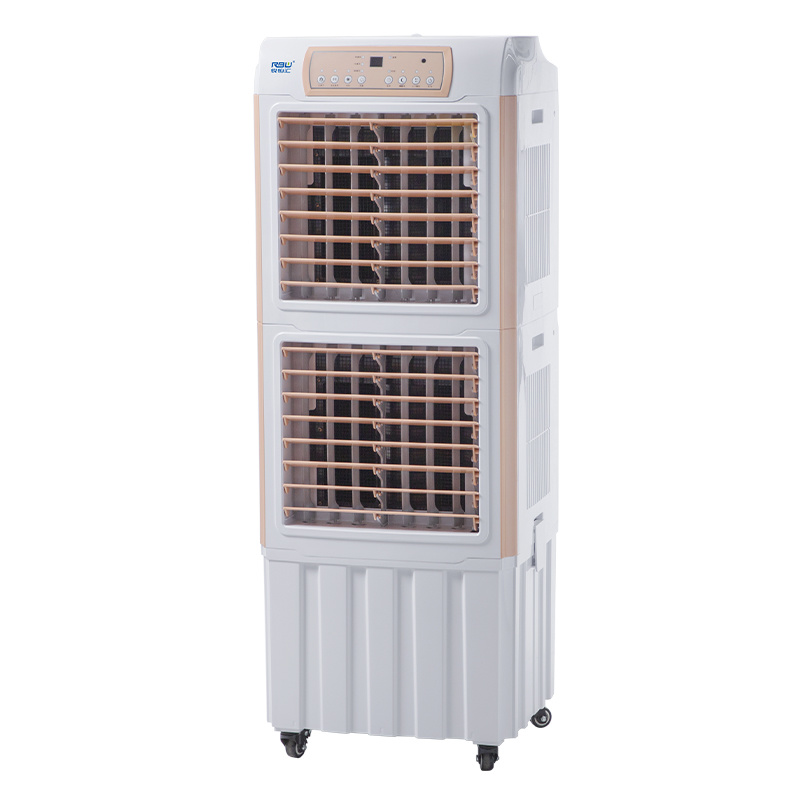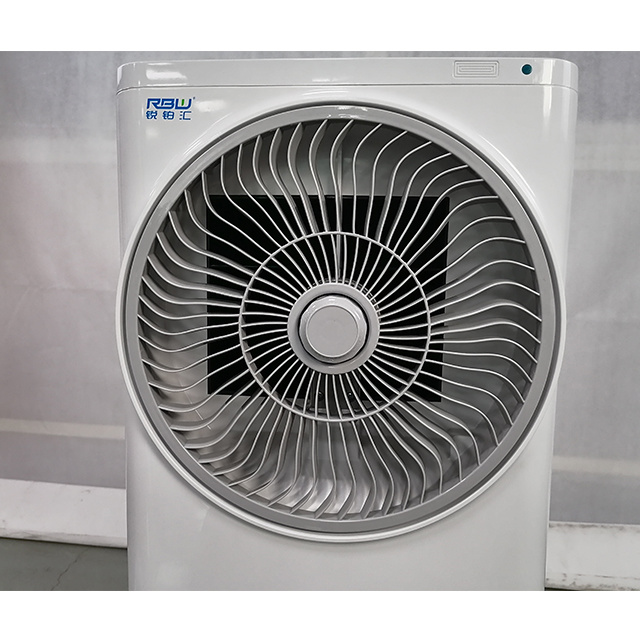News
Understanding the Noise Levels of Air Coolers: What to Expect in Your Bedroom
Time:
2025-11-15
Understanding the Noise Levels of Air Coolers: What to Expect in Your Bedroom Table of Contents 1. Introduction to Air Coolers and Their Functionality 2. Understanding Noise Levels: Decibels Explained 3. The Impact of Noise Levels on Sleep Quality 4. Comparing Air Coolers: Which is Quieter? 5. Noise Reduction Techniques for Air Coolers 6. Key Features to Consider When Choosing an Air
Understanding the Noise Levels of Air Coolers: What to Expect in Your Bedroom
Table of Contents
- 1. Introduction to Air Coolers and Their Functionality
- 2. Understanding Noise Levels: Decibels Explained
- 3. The Impact of Noise Levels on Sleep Quality
- 4. Comparing Air Coolers: Which is Quieter?
- 5. Noise Reduction Techniques for Air Coolers
- 6. Key Features to Consider When Choosing an Air Cooler
- 7. Top Air Cooler Brands for Quiet Operation
- 8. Frequently Asked Questions
- 9. Conclusion
1. Introduction to Air Coolers and Their Functionality
Air coolers, often referred to as evaporative coolers, are devices designed to provide effective cooling in various spaces, including bedrooms. They work by utilizing the natural process of evaporation to lower the temperature of the air. Unlike traditional air conditioning systems, air coolers do not rely on refrigerants but instead pull warm air through water-saturated pads, producing a refreshing breeze. This unique functionality makes them an eco-friendly choice for many households.
However, one critical factor that often gets overlooked when selecting an air cooler is the noise level it produces. **Understanding noise levels** is essential, particularly for those using air coolers in bedrooms, where a peaceful environment is paramount for quality sleep.
2. Understanding Noise Levels: Decibels Explained
The sound produced by an air cooler is measured in decibels (dB), a unit that quantifies sound intensity. Understanding this scale is crucial for making an informed decision about which air cooler is best suited for your bedroom.
- **0 dB**: The threshold of hearing.
- **30 dB**: A whisper or soft breeze, ideal for quiet environments.
- **40-50 dB**: Normal background noise in homes, like a quiet refrigerator.
- **60 dB**: Standard conversation level; can be disruptive in a bedroom setting.
- **70 dB and above**: Considered loud; may interfere with sleep.
When shopping for an air cooler, pay attention to the manufacturer's specifications regarding noise levels. Many modern air coolers operate within the **30-50 dB range**, making them suitable for use in bedrooms.
3. The Impact of Noise Levels on Sleep Quality
Noise levels can significantly affect sleep quality. Studies indicate that prolonged exposure to sounds above 50 dB can lead to sleep disturbances, affecting both the duration and quality of sleep. A quiet environment enhances relaxation and facilitates deeper sleep.
**Factors Influencing Sleep Quality Include:**
- **Type of Noise**: Continuous sounds, like the hum of an air cooler, are generally less disruptive than intermittent noises.
- **Personal Sensitivity**: Some individuals are more sensitive to noise than others, making them more susceptible to sleep disturbances caused by air cooler sounds.
- **Sleep Environment**: Other factors such as room size, insulation, and the presence of other noise sources can amplify or mitigate the impact of air cooler noise.
Choosing an air cooler with lower noise levels can help create a serene sleeping environment.
4. Comparing Air Coolers: Which is Quieter?
When evaluating air coolers for bedroom use, it is essential to compare various models based on their noise levels and other features.
**Key Considerations:**
- **Fan Speed Options**: Many air coolers have multiple fan speeds. Higher speeds often lead to increased noise levels. Opt for models that allow you to adjust the speed based on your comfort level.
- **Design and Build Quality**: The construction materials can affect noise transmission. Look for coolers with quality construction that minimizes vibration and noise.
- **Brand Reputation**: Established brands often invest in technology that reduces noise levels. Research models and read customer reviews to find quieter options.
By comparing specifications and user feedback, you can make an informed choice regarding which air cooler is optimal for your bedroom.
5. Noise Reduction Techniques for Air Coolers
Several strategies can be employed to minimize the noise produced by air coolers, ensuring a more peaceful environment.
**1. Positioning**
Place the air cooler away from walls or other hard surfaces to reduce noise reflection.
**2. Use of Sound Dampening Materials**
Consider placing sound-absorbing mats or rugs beneath the cooler to mitigate vibration noise.
**3. Regular Maintenance**
Keep the air cooler clean and well-maintained. Dust and debris buildup can cause the unit to work harder, leading to increased noise levels.
**4. Choosing the Right Model**
Invest in air coolers specifically designed for quiet operation. Look for models marketed as "whisper-quiet" or "silent operation."
By implementing these techniques, you can significantly reduce the noise levels of your air cooler.
6. Key Features to Consider When Choosing an Air Cooler
When selecting an air cooler for your bedroom, it is crucial to consider various features that contribute to its effectiveness and comfort.
**1. Noise Ratings**
Always check the noise ratings (in dB) provided by the manufacturer. Aim for models that operate below 50 dB for bedroom use.
**2. Cooling Capacity**
Assess the cooling capacity, typically measured in cubic feet per minute (CFM). Ensure that the cooler is appropriate for the room size.
**3. Humidity Control**
Some air coolers come with humidity control settings, allowing you to adjust moisture levels for optimal comfort.
**4. Energy Efficiency**
Look for energy-efficient models that consume less power while providing effective cooling. This feature is essential for both savings and reducing environmental impact.
**5. Portability**
Consider whether you want a stationary or portable air cooler. Portable units offer flexibility in placement, while stationary models may provide more powerful cooling.
By evaluating these features, you can choose an air cooler that meets your specific needs, ensuring a pleasant sleeping environment.
7. Top Air Cooler Brands for Quiet Operation
Several brands are renowned for producing high-quality, quieter air coolers. Here are some of the top contenders:
**1. Honeywell**
Known for innovative designs and reliable performance, Honeywell offers air coolers that balance cooling efficiency with noise reduction.
**2. Evapolar**
Evapolar specializes in compact air coolers designed for personal use. Their products are well-regarded for quiet operation and energy efficiency.
**3. Black + Decker**
This brand is synonymous with quality home appliances. Their air coolers often feature user-friendly designs and operate at lower noise levels.
**4. Luma Comfort**
Luma Comfort focuses on high-performance evaporative coolers with modern features, including low-noise technology.
**5. Symphony**
A leading brand in evaporative cooling, Symphony offers a range of models that are both efficient and quiet, ideal for bedroom use.
Exploring these brands can lead you to find the perfect air cooler for your bedroom while ensuring minimal noise disruption.
8. Frequently Asked Questions
**Q1: How loud are most air coolers?**
Most air coolers range from 30 dB to 70 dB, with the quieter models being around 30-50 dB, making them ideal for bedroom use.
**Q2: Can I reduce noise from my air cooler?**
Yes, noise can be reduced by proper positioning, using sound-absorbing materials, regular maintenance, and choosing a quieter model.
**Q3: What is the best fan speed for quiet operation in air coolers?**
Lower fan speeds often produce less noise. Experiment with different speeds to find the most comfortable setting that does not disrupt sleep.
**Q4: Are there air coolers designed specifically for bedrooms?**
Yes, many brands offer air coolers specifically designed for bedroom use, focusing on quieter operation and improved comfort.
**Q5: How do I maintain my air cooler for optimal performance?**
Regularly clean the water reservoir, replace pads as needed, and ensure that the unit is free of dust and debris to maintain efficiency and reduce noise.
9. Conclusion
Selecting the right air cooler for your bedroom involves more than just considering cooling power—it is crucial to evaluate noise levels and their impact on your sleep quality. By understanding the decibel ratings, exploring noise reduction techniques, and evaluating essential features, you can find an air cooler that enhances your comfort without disrupting your peace. With the proper choice, you can enjoy a restful night’s sleep, even on the hottest of days.
Related News
Share to
Are you ready?
Start your project now!









